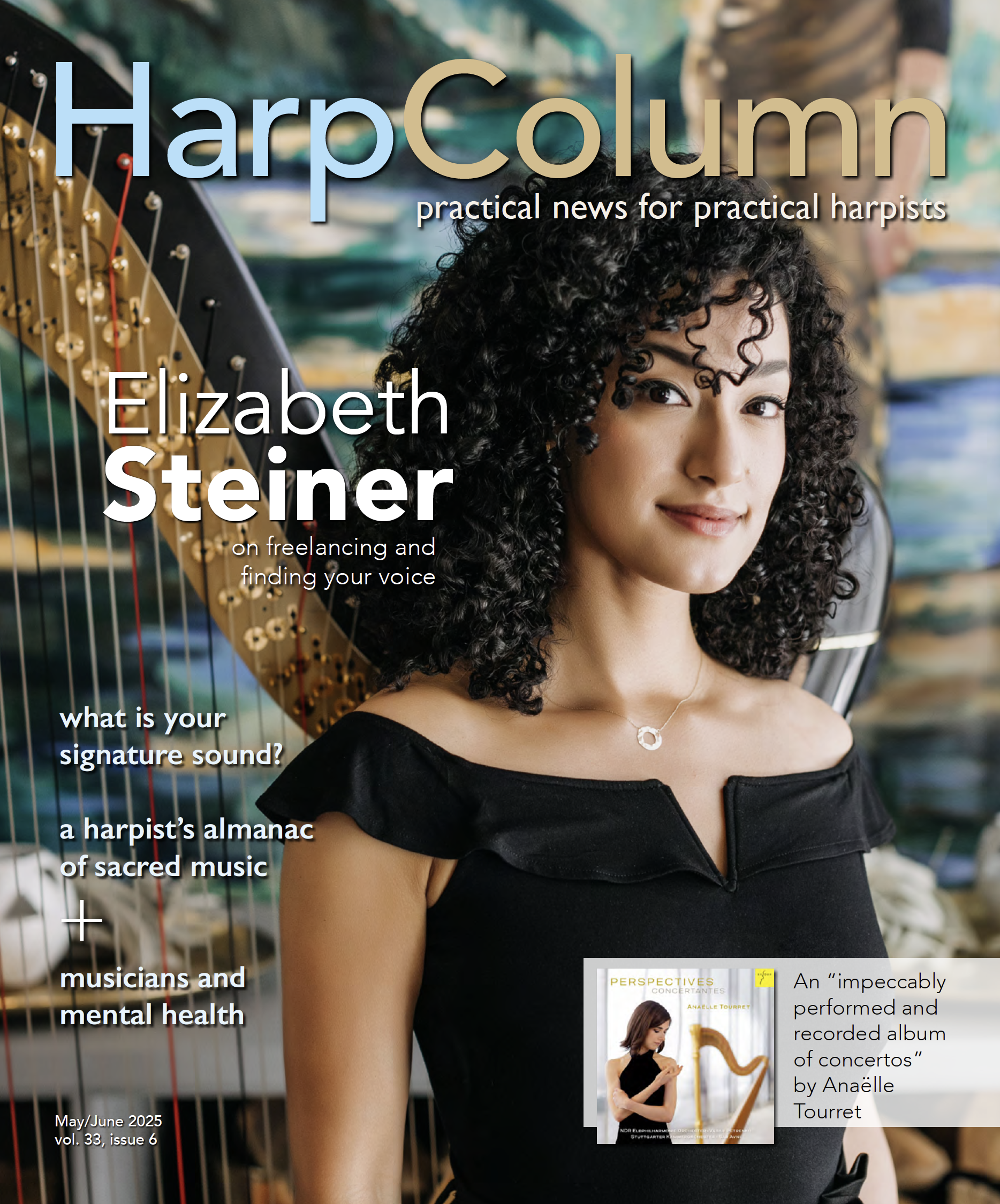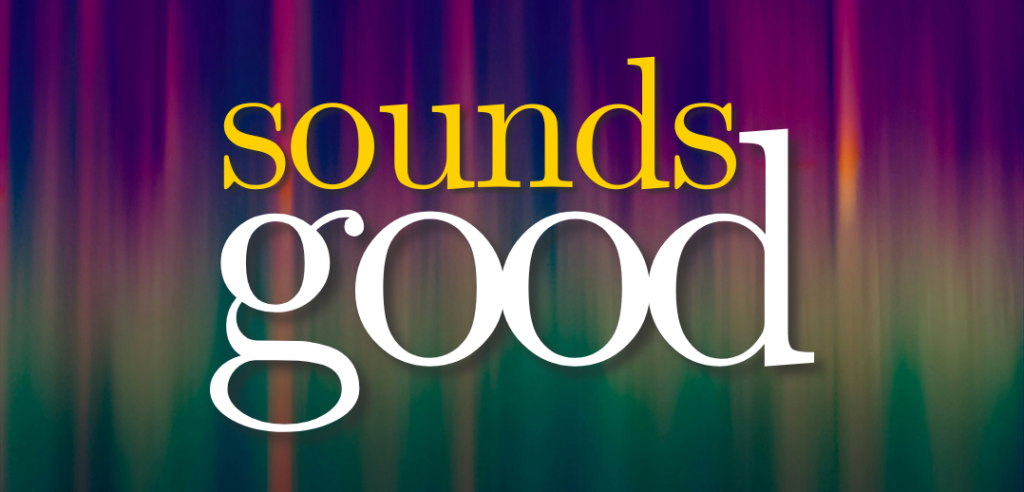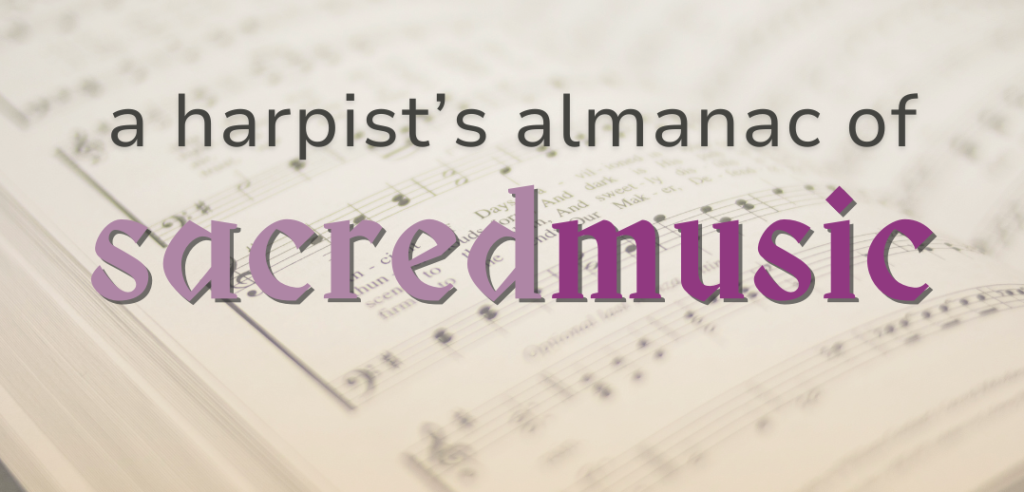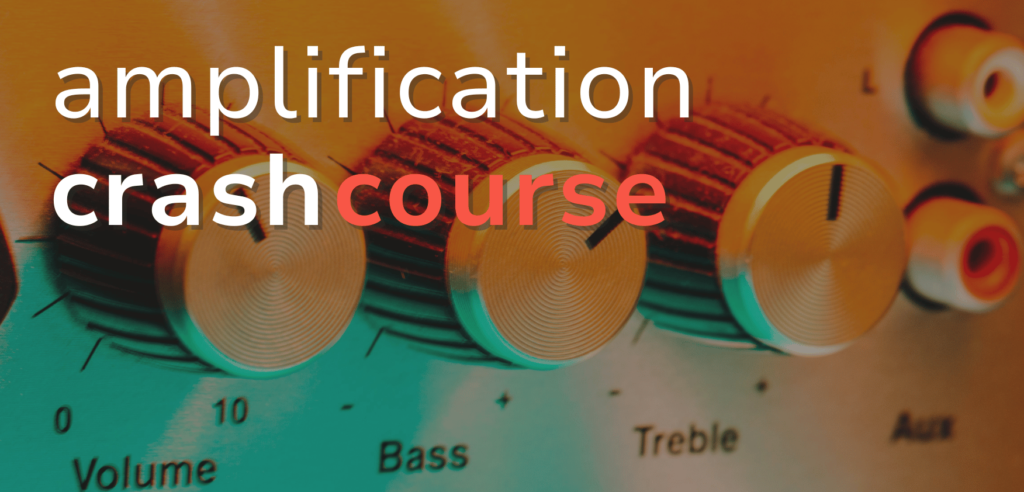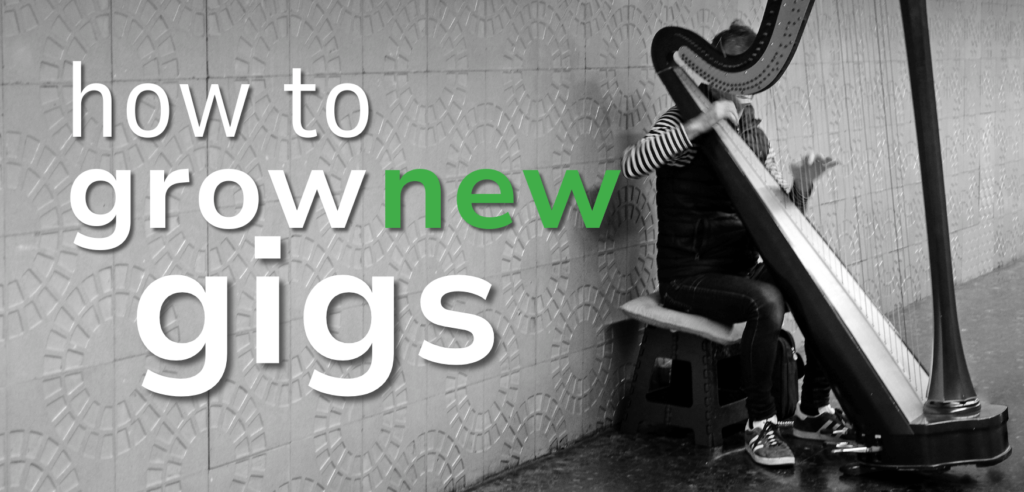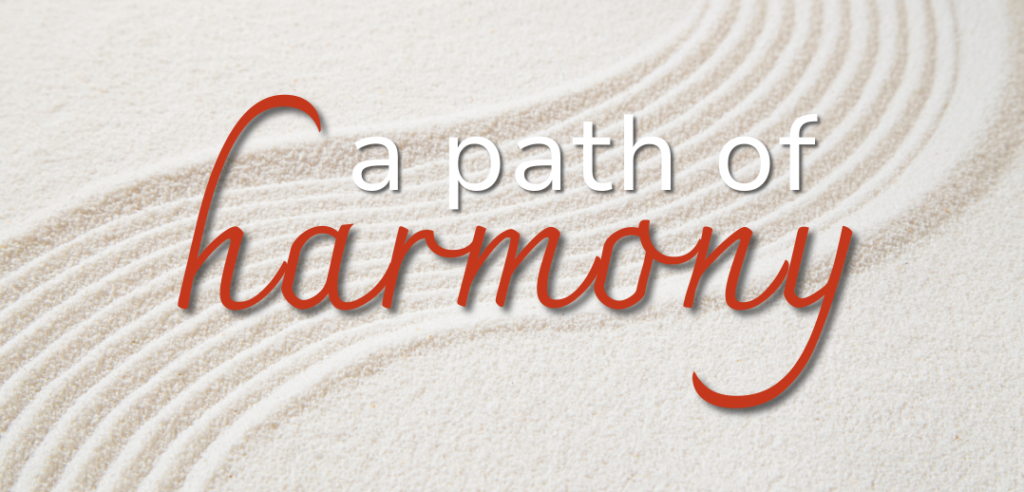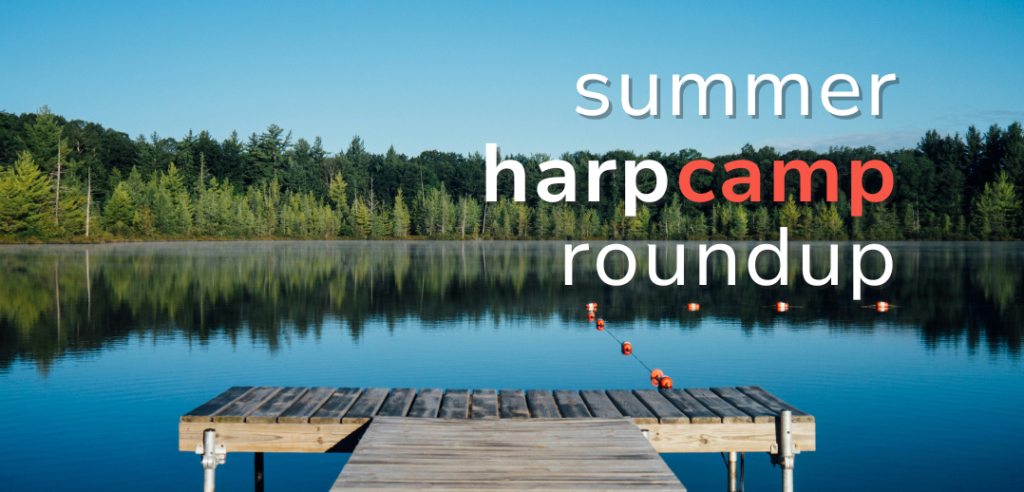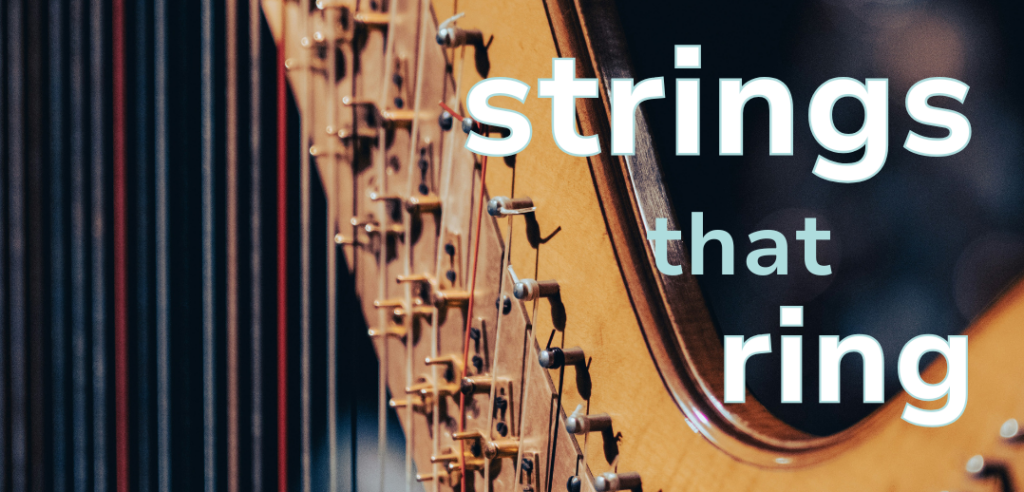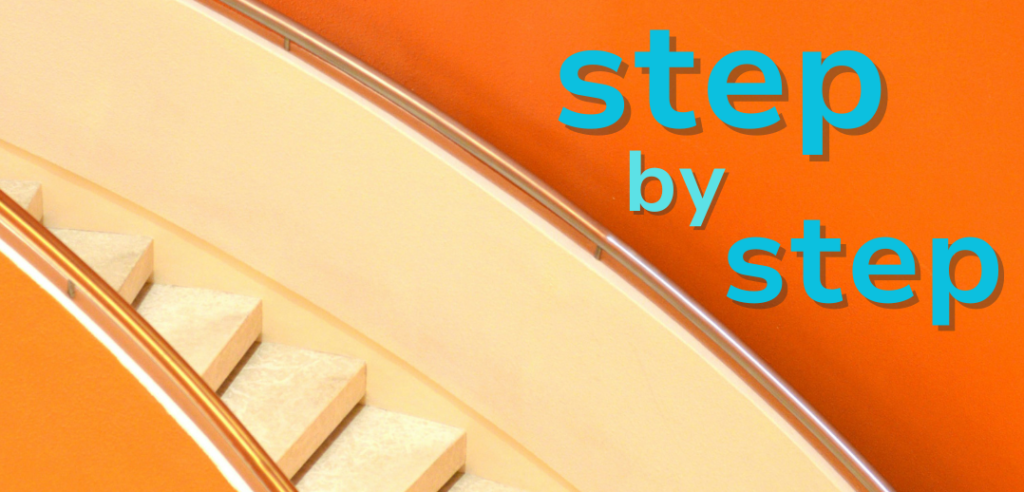Anyone who has had to choose a college knows how overwhelming the process can be. Pursuing the harp in your higher education can add to the confusion. Students and parents face many harp-specific decisions and music curriculum questions, yet there are few places to turn for such specific answers. That’s why we’re here! We asked five college harp experts—Jaymee Haefner, Julia Coronelli, Gillian Benet Sella, Charles W. Lynch III, and Lynne Aspnes—to weigh in with answers to five critical questions facing high school harp students.
Can you describe the difference between majoring in harp, minoring, and taking lessons as a non-major? How do you decide which is best for you?
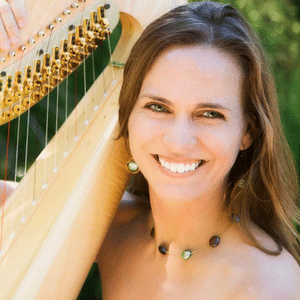
The decision about majoring or minoring is so very individual—but it’s important to know that there is time to make this decision, even after you enter college.
—Jaymee Haefner
The good news is that there are many ways to participate in music with harp as your instrument at the college level. Essentially, the difference between majoring, minoring, or being a non-major is the amount of time spent per week with your harp and harp teacher. Most students think of “performance majors” as “harp majors”— meaning that most of their music classes are in lessons, ensembles, masterclasses, and other performances; solo recitals are normally required before graduating. Other music majors choose another area of music as their major (such as theory, music education, or composition), but take lessons and perform on the harp in lessons and ensembles throughout their degree, with less intensive performance requirements. Some students seek a Bachelor of Arts degree, which has more non-music classes compared with a Bachelor of Music degree, which has more music classes.
A minor “in harp” is normally the same as a minor “in music,” and the requirements vary widely from college to college. Normally, this is a limited number of credits (around 12-15) within music, including lessons, theory, a survey of music history, and sometimes ensemble participation. Non-major lessons are normally taken as elective credits, and often do not carry the performance-intensive requirements of performance-major lessons. It’s always a good idea to discuss this with your teacher, because advanced students may elect to have more advanced requirements.
The decision about majoring or minoring is so very individual—but it’s important to know that there is time to make this decision, even after you enter college. There are many ways to have a career as a harpist (not only as a soloist, professor, or orchestral player), and schools are continually working to adapt to these newer interests. College is a time to explore, to try new things, and to figure out what shape the harp might take in your life— enjoy the journey!
—Jaymee Haefner is associate professor of harp at the University of North Texas, where she has taught since 2006. She currently serves as director of graduate studies for the College of Music and has previously served as director of undergraduate studies and co-chair of the University Undergraduate Curriculum Committee.
As a high school student, what can I do over the next few years to prepare to study harp in college?
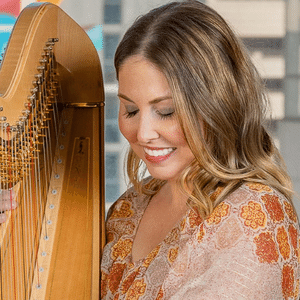
…having a strong rhythmic foundation is possibly the most important aspect of being a great musician.
—Julia Coronelli
One of the most important and best things that you can do to prepare for majoring in harp performance in college is to get as much ensemble experience as possible in high school—and even before that. Most cities have wonderful youth orchestras that provide invaluable experiences. I started playing in the Chicago Youth Symphony Orchestra when I was 9 years old, so by the time I went to college at age 17, I had already been playing in an orchestra every single week for eight years.
Summer festivals are another place where you can gain important ensemble experience and knowledge. Festivals that I attended in high school and would recommend are Boston University Tanglewood Institute and Aspen Music Festival and School. Knowing how to play in an ensemble (following a conductor, knowing how to prepare and study your parts, how to play perfectly in sync with 80 other people, etc.) is so much more than just knowing the notes on the page, and really the only way to get comfortable is to do it as much as possible. Not to mention that many of the conductors and other students at festivals and youth orchestras will end up being your colleagues and friends for the rest of your life.
In my opinion, having a strong rhythmic foundation is possibly the most important aspect of being a great musician. It’s also something that other musicians who are not harpists will immediately notice and appreciate (in auditions and elsewhere). So I would really make sure that is a main focus of your harp studies from as early an age as possible. Counting out loud while you play, singing your part and conducting, and using a metronome consistently are all things that should be a part of your daily practice.
—Julia Coronelli teaches at DePaul University in Chicago and is principal harpist of the Milwaukee Symphony Orchestra.
What are the most important criteria to consider when choosing a school to study harp?
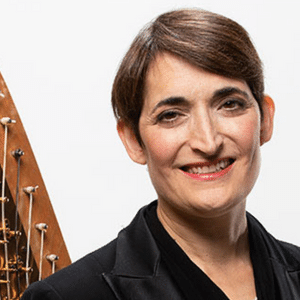
For harp studies, your entire education experience will be shaped by your harp teacher…
—Gillian Benet Sella
When looking at schools to study harp I would first determine what kind of school you prefer. Do you want to exclusively study music and the harp in a conservatory setting, or would you prefer a university where you could supplement your studies with outside classes, meet non-musicians, and possibly get another degree in addition to the music degree? Some schools like the Cincinnati College-Conservatory of Music are a conservatory within a university, which allows you to do both.
Look into the ensemble opportunities at each school and find a school that has a rich musical environment with ample opportunities to participate in ensembles with other serious musicians. Any fine music school will have good orchestras, chamber and wind ensembles, but not every school produces full performances of opera, ballet and musical theater. Check whether there are also opportunities to perform or play gigs outside of school, which is more likely at an urban institution.
For harp studies, your entire educational experience will be shaped by your harp teacher, with whom you will have more contact than with any other faculty member. It is important to find a teacher you like and respect. Make contact through emails and phone calls to find out more about the program and to learn how responsive the teacher is. Reach out to current students at the school to find out how they like studying with the teacher and ask what kind of atmosphere the teacher promotes in the studio. Plan to have a lesson, (ideally in person) on a visit to the school to meet the teacher and see the harp class in action. It is important that you have a good rapport with the teacher and the other harp students as they will form the nucleus of your community at school.
—Gillian Benet Sella teaches harp at the University of Cincinnati College-Conservatory of Music and is principal harpist of the Cincinnati Symphony Orchestra.
Do I need a Bachelor of Music degree for my undergrad if I want to be a professional harpist? What are the differences between all of the different undergraduate degrees you can earn as a harpist?

There is no guaranteed road map for a successful career as a professional harpist, but a degree program in music can give you opportunities…
—Charles W. Lynch III
Being a professional harpist encompasses so many aspects in the current professional world. Do you need a degree? Maybe not, but imagine how a degree could help you develop a skill set that will ensure your success as a harpist in an ever-changing professional world.
Technically, you could develop a career as a professional harpist without a degree. But pursuing any undergraduate music studies can help you build a well-rounded skill set and open doors to other opportunities in the professional world. A degree in music will allow you to immerse yourself in concentrated studies of your instrument and musical development, while also giving you opportunities to create networks of like-minded artists and colleagues. Furthermore, these professional connections will help you continue your development and focus your skills and artistic endeavors beyond collegiate studies throughout your career.
There are a variety of undergraduate degree programs available. Bachelor of Music in Performance degrees can allow you to fully immerse your studies in your instrument and performance skills. Ultimately, a performance career may be based on an audition and not your education, but a degree can help you focus your studies on the musical and technical skills needed. Bachelor of Music in Music Education degrees are required for certification if you are hoping to teach in a public school system. Music education degrees can also broaden your understanding of educational philosophies and methods that will add to your success in a private studio or school system that does not require certification. A Bachelor of Music in Music Therapy is also required for licensure.
Bachelor degree programs in composition, popular music, jazz studies, music business, and other specializations can offer opportunities to develop skills in various aspects of the professional music world. These degree programs also allow you to immerse yourself in the development of musical and technical skills specific to your instrument. Additionally, consider certificate options that several institutions make available in conjunction with a degree program. Entrepreneurial programs, interdisciplinary studies, or business training could help you take advantage of future opportunities to strengthen your professional career.
While the spectrum of activities as a professional harpist is continually changing and developing, so are the degree options for an undergraduate education. What are you passionate about? Find a degree program that will help you gain the background and skills needed while challenging you with a wide variety of educational opportunities. There is no guaranteed road map for a successful career as a professional harpist, but a degree program in music can give you opportunities to immerse yourself in your musical studies and push your boundaries to develop your own innovative and thriving professional career in the future.
—Charles W. Lynch III is a faculty associate in harp at Arizona State University and a harp specialist with the Mesa Public Schools.
As a harp student, how do you determine the best type of school for your undergrad—university, liberal arts college, or conservatory?
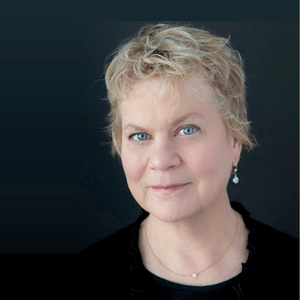
Conservatory, university, or liberal arts college, every undergraduate experience has potential for you to be successful.
—Lynne Aspnes
Every four-year undergraduate degree program requires a minimum of 120 semester credit hours, or 180 quarter credit hours. Traditionally the total credit hours have been distributed in different ways, depending on the type of institution. In a conservatory setting the credits within your music discipline can comprise upwards of 80% of your total credit work; in a university setting the total credits represent a 2/3rds split between your primary discipline (music for example, at 90 credits) and external distribution coursework (totaling 30 credits.) In a liberal arts college the degree options comprise a 50/50 split within music and without. A Bachelor of Science, or Arts or Music degree represents the 90/30 credit split for university degrees; the Bachelor of Musical Arts degree or sometimes the Bachelor of Fine Arts degree represents a 50/50 split between music coursework and coursework in fields outside of music, and the Bachelor of Arts degree or Bachelor of Music in Music degree has traditionally represented the 90 undergraduate credits being taken in academic courses outside of music and 30 credits being completed within music. Music conservatories have traditionally been stand-alone institutions where faculty from nearby colleges and universities come in to teach academic course work each term. This scenario emphasizes immersion in the study of music, with supplementary external course work requirements kept to a minimum.
Over the past decades the distinctions between these institutional models and the degree program requirements have blurred. Many music conservatories now affiliate themselves with neighboring academic institutions and students can pursue two undergraduate degrees, or elect their academic coursework on another campus, or choose a five or six-year combined undergraduate/ masters degree program plan with degrees issued by each school. Universities have partnered with other units on campus to offer dual degree options and have expanded their music degree options to embrace everything from a conservatory model with Artist Diploma programs to the hybrid Bachelor of Musical Arts, Bachelor of Fine Arts, and Bachelor of Music in Music (no instrumental/vocal attribution) degrees.
So to answer the question, “as a harp student, how do you determine the best type of school for your undergrad—university, liberal arts college, or conservatory?” I believe the choice comes down to three key decisions.
1. Be honest with yourself and be clear about your commitment to studying music and playing the harp while you are in college.
2. Find an institution that will work with you to accommodate your academic as well as performance goals and—perhaps the most important criteria of all—
3. Clearly articulated, shared, and achievable expectations, aspirations, and ambitions communicated between you and your harp teacher.
You are going to spend a minimum of 30 weeks each year for four years, for up to 3 hours a week in lessons and studio classes, with your harp teacher. Factor in the addition of chamber music and/or concerto repertoire coaching, prepping ensemble repertoire, extra coaching around recital and audition times; potential pedagogy and repertoire classes, and possibly harp ensemble, all with your harp teacher at the helm. You had better want, more than anything else, to learn from that harpist, to be ready to trust and respect their expertise and their training, and to be prepared to, at many turns during your undergraduate training, articulate and align your aspirations with the expectations of the school and your harp teacher. Being an undergraduate arts major is the equivalent to being a PhD candidate in any other field. In our case it’s your harp teacher who functions as the equal to an academic’s doctoral thesis advisor. The relationship you have with your harp teacher is the key that unlocks a safe and supportive space where you can explore and experiment with learning. In that space, and over those four years of your undergraduate training, you will be developing your musical and instrumental skills to the point where you can either step away from your undergraduate training with the confidence and skill to be a well-prepared young professional or choose to continue your training to refine and hone your abilities to advanced levels of knowledge and skills.
Conservatory, university, or liberal arts college, every undergraduate experience has potential for you to be successful. Be honest with yourself about your level of commitment to pursuing the harp during your undergraduate studies. Get to know the harp students and the harp faculty at the schools that interest you. See where your skills, ambition, and commitment intersect the best with the faculty and programs available at the school of your choice. The perfect fit is out there, but for us it has nothing to do with the success or not of the football team and everything to do with the working relationship you establish with the harp faculty.
—Lynne Aspnes is professor emerita of harp at the University of Michigan School of Music, Theatre & Dance, where she served as Associate Dean for Academic Affairs for 11 years. She served as Associate Dean for the Herberger Institute for Design and the Arts at Arizona State University for two years. •




